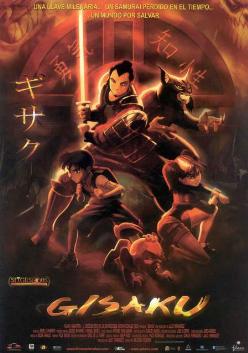This article relies largely or entirely on a single source .(October 2021) |
| Gisaku | |
|---|---|
 Theatrical poster | |
| Directed by | Baltasar Pedrosa Clavero Antonio Santamaría |
| Produced by | Julio Fernández |
| Music by | Óscar Araujo |
| Distributed by | Filmax |
Release dates |
|
Running time | 78 minutes |
| Country | Spain |
| Languages | Japanese Spanish English |
Gisaku is a Spanish animated feature film directed by Baltasar Pedrosa Clavero. It was premiered in Japan on March 4, 2005. It was theatrically released in Spain on March 17, 2006. [1] The film has three official soundtracks: Japanese, Spanish, and English.